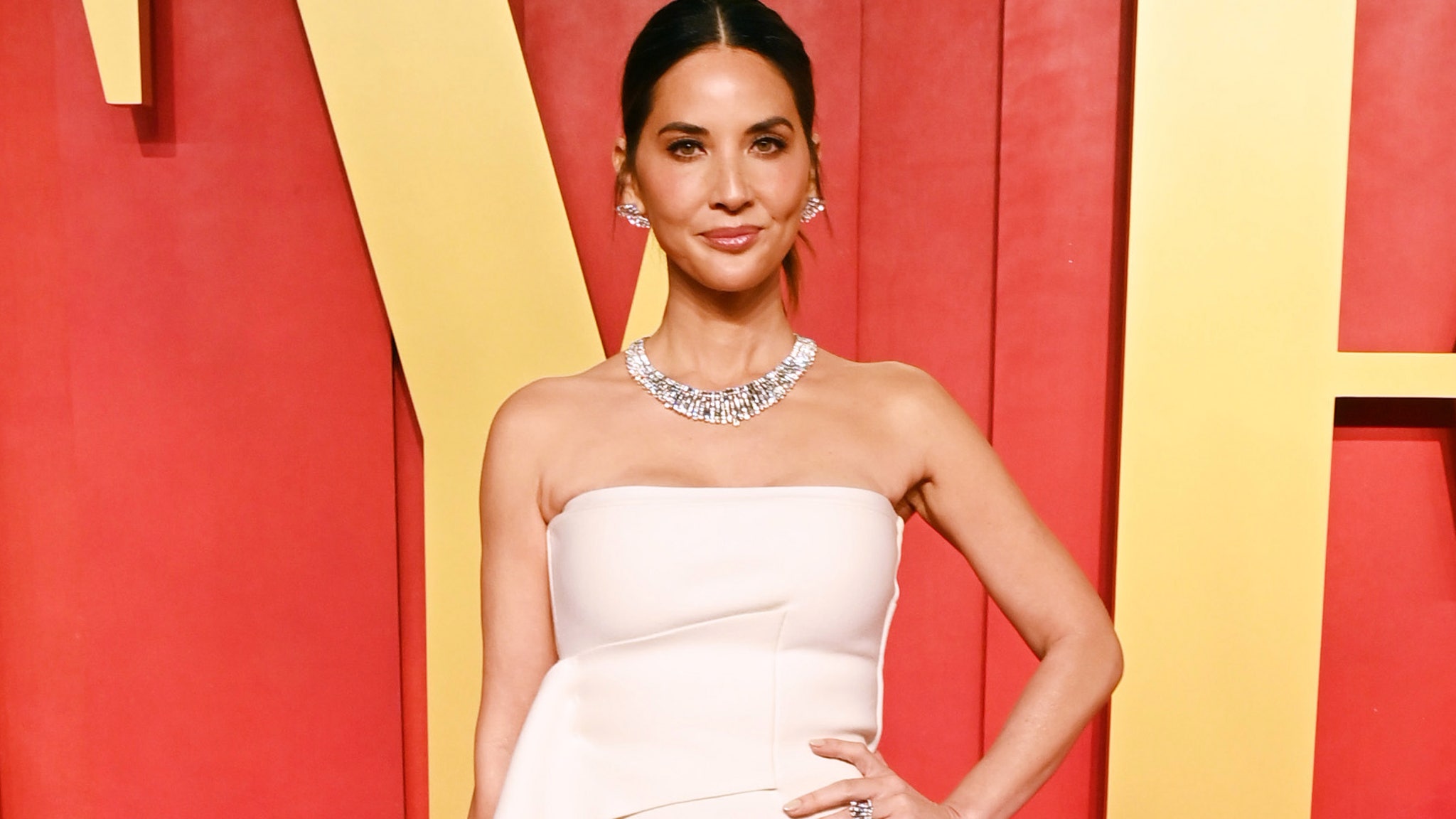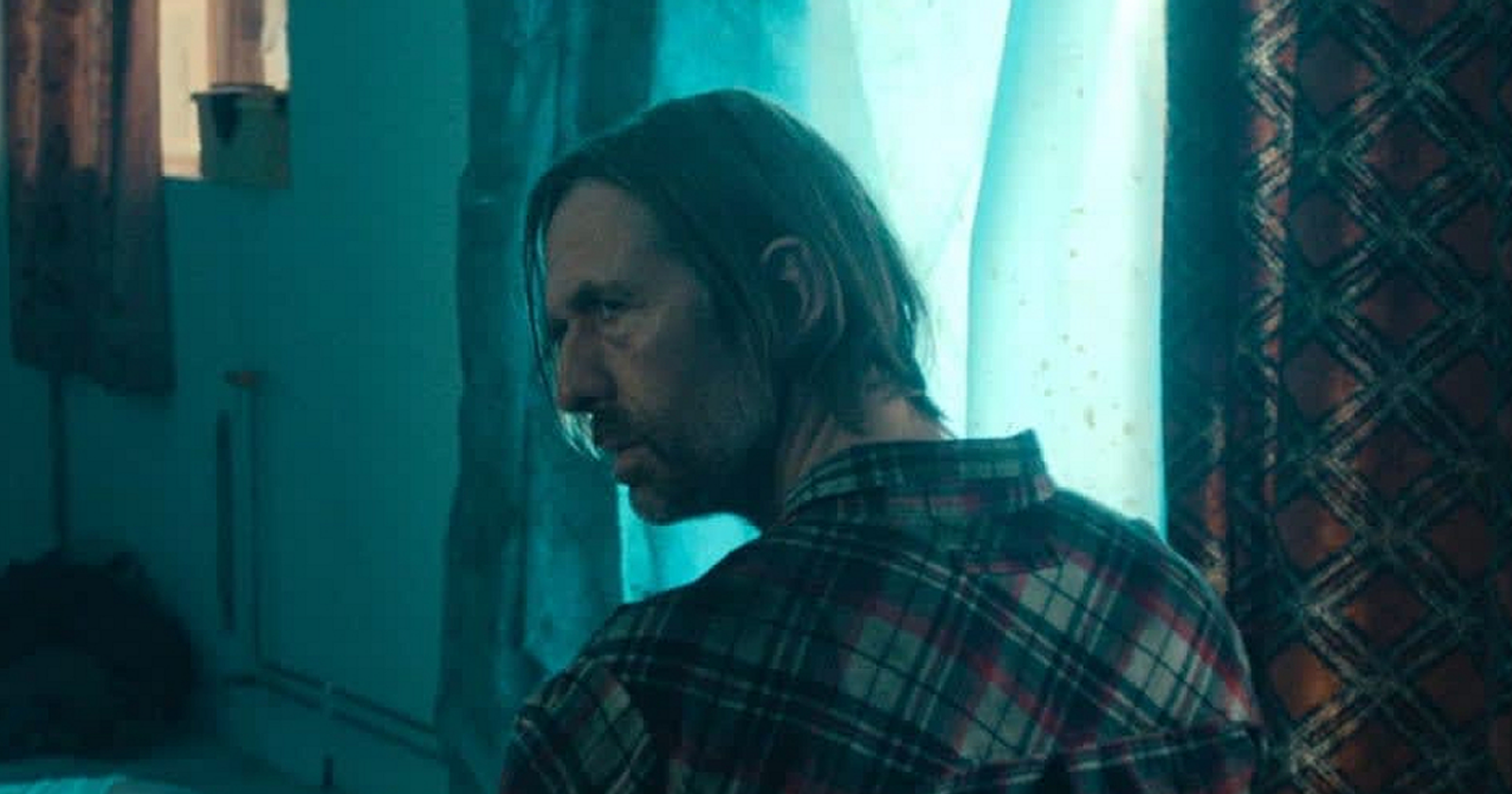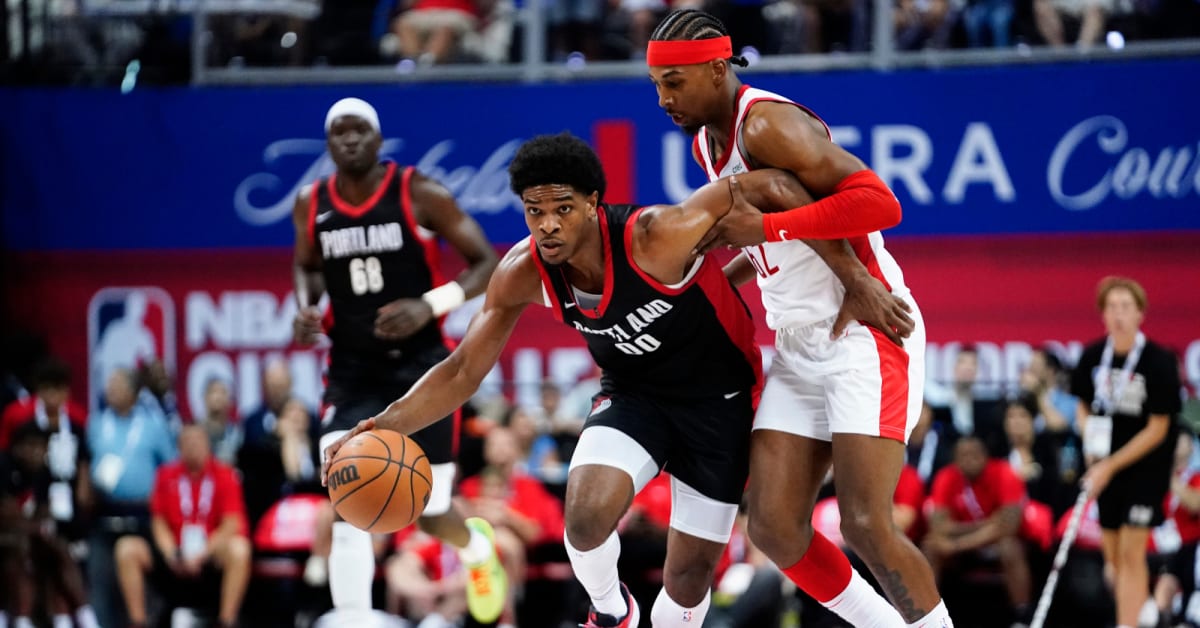
The 10 Best Baz Luhrmann Musical Moments
Technically, Baz Luhrmann has only made one outright musical: 2001’s classic Moulin Rouge! But in some ways, every movie he’s ever made feels like a musical, with characteristics of Broadway, opera, music video and rock concert rematched and remixed in different ratios. With Elvis, Luhrmann seems particularly enamored of how these possibilities exist within the history of American pop music, and few filmmakers are better-equipped to depict the delirious, ridiculous heights of the form than Luhrmann.
Here, then, is a best-of-the-best compilation tape: The ten best musical moments in Baz Luhrmann’s filmography so far.
10. “Perhaps, Perhaps, Perhaps” in Strictly Ballroom
<p>Let’s start with something simple: This number from the dance musical <i>Strictly Ballroom</i> is not the movie’s flashiest or most ebullient, taking place backstage rather than in front of an audience. Scott (Paul Mercurio) and Fran (Tara Morice) are about to dissolve their unlikely dance partnership to increase Scott’s likelihood of winning a championship…until they lure each other back with actions rather than words, mutually pulled into a dance as Doris Day’s “Perhaps, Perhaps, Perhaps” emerges on the soundtrack. Without big costumes or set decoration more complicated than a couple of curtains, Luhrmann relies on the precision of the song (and, of course, the chemistry of his actors) to draw us into this partnership. Eventually, Scott and Fran draw a crowd anyway; how could they not?</p> <hr /> <h2>9. “Talk Show Host”/”Exit Music (For a Film)” in <i>Romeo + Juliet</i> </h2> <p /> <p>Radiohead doesn’t necessarily seem like a go-to Luhrmann musical act these days; their music feels too idiosyncratic for his frenzied mash-up style. But back in 1996, Radiohead was more of a mid-tier alt-rock act than an issuer of generational album-length statements. In other words, “Exit Music (For a Film)” wasn’t just a clever name; the future <i>OK Computer</i> track really was written for Luhrmann’s Shakespeare modernization. It’s a gorgeous bummer that emerges after an initial credits-rolling hush. (Interestingly, another song initially written for <i>Romeo</i> was “Come What May,” which went unused—but was disqualified from Oscar consideration for <i>Moulin Rouge!</i> because it was originally intended for the earlier film.) “Exit Music” is perfect, but the real classic on-screen Radiohead moment in <i>Romeo + Juliet</i> is the one involving B-side “Talk Show Host” (which, unlike “Exit Music,” actually appears on the film’s soundtrack—a rare case of a soundtrack prioritizing a song used in the body of the movie over a credits-only tune). Thom Yorke’s distinctive vocals are left out; the song’s four-note intro and backing melody is looped to score a scene of Leonardo DiCaprio’s Romeo hiding out in a dusty desert, smoking a cigarette, awaiting news from Verona and journaling. It’s a brief (and wonderfully emo) moment that became weirdly indelible; almost anyone born between 1979 and 1986 likely associates those opening notes of “Talk Show Host” with DiCaprio brooding in his loud button-down shirt.</p> <hr /> <h2>8. “Young and Beautiful” in <i>The Great Gatsby</i> </h2> <p /> <p>I’m no fan of Lana Del Rey’s shallow, somnolent pantomimes of ennui, but the vibes, as the kids say, are perfect for her original contribution to the soundtrack of Luhrmann’s take on F. Scott Fitzgerald’s classic novel. Del Rey’s song scores a montage of Gatsby (Leonardo DiCaprio) reconnecting with his lost love Daisy (Carey Mulligan), with Daisy swooning over Gatsby’s orange juice machine, swimgear and, of course, all of his cool and beautiful shirts—all of the luxury and flash Gatsby hoped would one day impress Daisy, doing the job just as he pictured. The directness of the song’s lyrics play best in the background, as a lingering question that nags at the dreamy imagery: “Will you still love me when I’m no longer young and beautiful?”</p> <hr /> <h2>7. “The Pitch (Spectacular Spectacular)” in <i>Moulin Rouge!</i> </h2> <p /> <p>Almost any musical number from <i>Moulin Rouge!</i> could fit on this list, but I want to highlight one that might be called overlooked: The scene in which showbiz impresario Zidler (Jim Broadbent), his star courtesan/performer Satine (Nicole Kidman) and their band of bohemian artists must hastily throw together a pitch for their leering financier, the Duke (Richard Roxburgh). With much of it performed in the closest Luhrmann ever gets to a proscenium framing, it’s probably the lowest-tech, most traditional, least-augmented musical sequence in the film (by which I mean, it only features some cartoon sound effects and sped-up action). It’s also something of a mission statement for Luhrmann’s ideal storytelling aesthetic: A dizzying and breathless attempt to put on the show, spun out from a familiar melody (in this case the French can-can “Orpheus in the Underworld”) and whirling into a singular vision.</p> <hr /> <h2>6. “Trouble” in <i>Elvis</i> </h2> <p /> <p>Pop-musician biopics often embarrass themselves by insisting on their subject’s world-shaking importance. But Baz Luhrmann cannot be embarrassed, so he pushes his biopic <i>Elvis</i> further into grandiosity, repositioning a concert where Elvis Presley is supposed to confirm a new, less “wiggle”-centric, family-friendly image as an act of anti-segregation liberation, risking his career by singing Black and white fans alike into a frenzy. Austin Butler’s performance as Presley is never better than when he’s channeling the King’s on-stage energy, and this scene lends his gyrations an extra-righteous fervor. Is it a bombastic overreach to blend Elvis singing “Trouble” with a lawmaker’s segregationist rally across town? Possibly! But at least Luhrmann’s Presley exists in a context greater than his greatest hits. </p> <hr /> <h2>5. “Your Song” in <i>Moulin Rouge!</i> </h2> <p /> <p>When <i>Moulin Rouge!</i> came out in 2001, more than one critic complained that Luhrmann refused to let a single song play out all the way through, a complaint that manages to both misunderstand and flat-out misrepresent the movie he made. After all, is Ewan McGregor’s cover of “Your Song,” starting as stumbling spoken-word poetry before it soars into melody, so aggressively avant-garde? What really sets it apart from other musicals is not any kind of attention deficit, but how thoroughly Luhrmann thinks of terms more cinematic than theatrical. In other words, he knows when to leave naturalism behind, allowing McGregor and Nicole Kidman to dance across the sky.</p> <hr /> <h2>4. “El Tango de Roxanne” in <i>Moulin Rouge!</i> </h2> <p /> <p>Baz Luhrmann movies are known for their frenetic editing, but the flash-bang quickness of his cutting belies a strong sense of rhythm. Typically, his movies go hog-wild in their opening half-hour and build a more sustained (but no less eye-catching) tension as they go on. There’s no better example than “Tango Roxanne,” where Luhrmann reconceptualizes The Police’s hit as a dance number telling a story of jealousy as Christian (Ewan McGregor) struggles with that very emotion over Satine (Nicole Kidman) and her forced dalliance with the hated Duke. The slap and drag of feet on the floor, the counter-melody McGregor sings as he brood-walks to Satine’s window and the gravelly intensity of Jacek Koman’s vocals are perfectly synthesized with the spinning dancers and the actors’ anguished faces—commanding performances from all angles, in front of the camera and behind it. </p> <hr /> <h2>3. “Rhapsody in Blue” in <i>The Great Gatsby</i> </h2> <p /> <p>Luhrmann unleashes a torrent of his trademark anachronistic pop music throughout <i>The Great Gatsby</i>, a playful and effective way to convey the decadence and exuberance of the Roaring ’20s era. But the most thrilling cue in the film is more or less era-appropriate: George Gershwin’s “Rhapsody in Blue” was written around the same time Fitzgerald’s novel, and it booms onto the soundtrack just as Nick Carraway (Tobey Maguire) realizes that he’s speaking with his mysterious neighbor Jay Gatsby (DiCaprio). As fireworks explode in the background, DiCaprio turns and faces the camera and flashes the smile Maguire describes on the soundtrack, raising his champagne glass. Well done, old sport. <i>Gatsby</i> doesn’t technically have a <i>Moulin Rouge!</i>-style exclamation point in its title, possibly because after this moment, the punctuation would only be redundant. </p> <hr /> <h2>2. “That’s All Right” in <i>Elvis</i> </h2> <p /> <p>Throughout <i>Elvis</i>, it feels as if Luhrmann is on a mission to show how Elvis Presley informs so much popular culture, not least Luhrmann’s mash-up-happy sensibility. He’s constantly juxtaposing some of Presley’s major influences—gospel music and juke-joint R&B—with split-screens and cross-cutting, occasionally mixing in bits of contemporary music, weaving a tapestry of American popular music. In one sequence, the movie uses virtuosic editing to trace Presley’s history with his first single, “That’s All Right,” cutting together a performance from “Big Boy” Crudup that Presley saw as a boy, Presley playing the song in the recording studio and then his revival of the tune for his Vegas show. As the performance transcends time, Luhrmann also transcends biopic cliches about every scene leading up to a conveniently encompassing moment, turning the artifice of a musician biography into joyful delirium.</p> <hr /> <h2>1. “Elephant Love Medley” in <i>Moulin Rouge!</i> </h2> <p /> <p>It doesn’t matter if you love the songs. In many cases, I don’t. “Silly Love Songs” is far from Paul McCartney’s finest hour and I’ve never had much use for “I Will Always Love You,” whether Dolly Parton or Whitney Houston is singing it. Kiss, original performers of “I Was Made for Lovin’ You,” are among the worst the rock-music canon has to offer. Yet this sequence from <i>Moulin Rouge!</i> combines them all not with a cringe of <i>Rock of Ages</i>-style desperation, but a heedless rush of pure pop abandon—a glorious tribute to the profound depth of feeling that can be inspired even (or especially) by those bits of the Top 40 firmament. It starts with besotted writer Christian (Ewan McGregor) extolling the virtues of love to his beloved Satine (Nicole Kidman), as she attempts to counter him, both riffing on famous lyrics and melodies from pop hits while ascending to the top of Satine’s elephant-shaped tower. By the time the medley begins its climactic march through David Bowie’s “Heroes” (and, OK, I do love that one), the characters are in love. It’s that simple, that ridiculous, that perfect. More fireworks explode, drums pound in triumph, and the damn moon sings. Baz Luhrmann can’t necessarily guess your favorite song, but he seems to intuitively understand what it feels like to hear it. </p> <hr /> <p><i>Jesse Hassenger writes about movies and other pop-culture stuff for a bunch of outlets including The A.V. Club, Polygon, The Week, NME, and SportsAlcohol.com, where he also has a podcast. Following @rockmarooned on Twitter is a great way to find out about what he’s watching, listening to, or eating.</i>




























![Finally! General Hospital’s Brook Lynn and Chase Can Have Their Wedding Now That [Spoiler] Is Returning Finally! General Hospital’s Brook Lynn and Chase Can Have Their Wedding Now That [Spoiler] Is Returning](https://i0.wp.com/soaps.sheknows.com/wp-content/uploads/2022/11/163481_1083_v1.jpg?fit=300%2C300&ssl=1)








































